- Home
- Kay Hooper
Haunted Page 2
Haunted Read online
Page 2
—
SOCIABLE, GEORGIA, WAS a small town by most any standards, boasting no more than five thousand or so permanent residents; during the tourist season a few thousand more passed through or even stayed awhile, drawn by spectacular scenery, friendly residents, and a number of shops offering stunning handwoven textiles and other locally handcrafted items.
Tourists passing through invariably left with a good opinion of the town and its residents.
Sheriff Trinity Nichols, on the other hand, not only had to deal with the usual practical and political irritants endemic even in small and friendly towns but had also grown up here—and knew the people better than many of them either liked or would have wanted to admit.
Such as Sociable’s mayor, who suffered under the burden of having the surname of Fish. It had not made his childhood particularly happy and had proven bothersome to his adulthood as well.
There was just no way to make Elect Dale Fish Mayor! look good on a campaign poster, he had discovered. And he’d probably always wonder in his secret heart if he would have won if he hadn’t run unopposed.
“It’s vandalism, Trinity. And you’re not going to do anything about it?”
She wanted to reply that she was in her office on a Saturday, her day off, in order to respond to his summons—in other words taking his concerns seriously—but instead kept her tone businesslike.
“What do you want me to do, Dale? I’ll replace the sign, but if you believe taking away a NO TRESPASSING sign with a ghost drawn on it is going to keep the kids away from the church and parsonage, you can think again. I’ve already replaced that sign three times—just since Halloween.”
“We need a fence around the place,” he fretted.
“Well, that’s more your bailiwick than mine,” she reminded him. “Talk to the commissioners. But I’m betting they’ll balk.”
“Why?”
“A fence around a church. Think about it.”
It was clear he hadn’t until just then, and he slumped in the visitor’s chair in front of her desk. “Dammit.”
“Why worry about it at all, Dale? No actual damage has been done to the property. In fact, from what I’m hearing, the kids dare each other to touch the front door and then haul ass, running halfway down to Main Street before they stop. It’s just to prove to each other how brave they are.”
“I just don’t like it. That might be what they’re doing now, but no more than a year before you became sheriff, a team of those ghost hunters decided to stay the night in the parsonage, and even if nobody knows what happened, they were gone by daylight.”
“Leaving the place undamaged, even if the front door was standing wide open. I read the report. And whatever did or didn’t happen didn’t end up on TV or YouTube, for which we can be grateful. So?”
“So how long will it be before some of the older kids dare each other to spend the night in the church or parsonage?”
“Don’t hold your breath. It’s just the younger kids trying to prove they aren’t afraid of ghosts. The older ones are way too caught up in teenage stuff to worry about whether a local landmark is haunted. Though I imagine the preacher’s story gets told around the occasional fireplace or campfire.”
“I wish you wouldn’t be so cavalier about it,” the mayor complained. “It was a tragedy, what happened up there.”
“Yes, I know. But it also happened a decade ago, and I’m being practical, or trying to. Dale, what is it you hope to accomplish? The Baylor sisters own the parsonage, and if they want to allow visitors—ghost hunting or otherwise—it’s their business. As for the church, it’s a respected historical landmark, kept in good repair, and hasn’t been vandalized in my memory. So?”
Mayor Fish rubbed the back of his neck, clearly uncomfortable.
Trinity eyed him. “Come on, spit it out. What’s really bugging you about the church?”
“I’ve just . . . heard things.”
“For instance?”
“At least two people I know aren’t imaginative have told me they saw the stained-glass windows of the church glowing in the middle of the night. A flickering glow, as if a fire burned inside.”
“And they didn’t call the fire department?”
“It wasn’t that kind of light. I mean, they were sure the church wasn’t on fire.”
“And they were close enough to be sure?”
He sighed impatiently. “With binoculars, yeah, they were sure.”
“And didn’t see anything else suspicious? Through those binoculars?”
He flushed. “No. They didn’t see anyone hanging around the place, or an unfamiliar vehicle, or anything like that. It was days ago, and, yes, the church is still standing. I drove up there yesterday to make sure there was no damage—which is when I saw the NO TRESPASSING sign defaced.”
“Okay, okay.” She frowned at him. It was sometimes difficult to take Mayor Fish seriously because he was a fretful man by nature and tended to fret about minor things, but Trinity had learned to read him well enough, she thought, to know that he was seriously bothered.
And not telling her everything.
“Look, I’ll check it out,” she told him. “I’ll go up there and make sure all is well. Talk to the sisters and find out if anything odd has happened at the parsonage. Look for signs of trespassers past the age of twelve, and make sure the church is locked up tight. How’s that?”
“All I can hope for, I guess.” He clearly realized that hadn’t been either the most gracious or the most professional response, and he cleared his throat as he rose to his feet. “Thanks, Trinity, I appreciate it.”
“No problem.”
She gazed after him for a long moment, then looked down at the black dog who had been lying silent and motionless on his bed behind her desk. “Come on, boy,” she said, rising. “Let’s go see if we can figure out what has Dale so worried.”
—
“NO TROUBLE TO speak of, Sheriff,” Edith Baylor said, her round face placid as always. “Haven’t seen anybody poking about the church or graveyard, and no sign the parsonage has been disturbed.”
“Are you and Lana in the parsonage much this time of year?” Trinity asked, referring to the other Baylor sister, now a widowed Lana Price; the two sisters did not live together, and Lana, according to her sister, was out at the mall near the highway, shopping.
“Oh, we go in with the cleaning crew every other week,” Edith replied comfortably. “Janet and her girls don’t really like being in the house without us. Same thing with the church, really. We don’t mind, Lana and me. Even though the church belongs to the town, it was Baylor land for generations, so we feel a duty to make sure everything is kept as it should be.”
“No more ghost-hunting crews asking to stay overnight?”
Edith smiled. “No, and only two groups came through back in the summer. I gathered from their disappointed faces that they didn’t find anything of interest.”
“Did you expect them to?” Trinity asked curiously.
“Not really,” Edith confessed. “They keep coming back year after year, trying to find ghosts or some evidence of the supernatural, but all their little gadgets never show anything unusual.”
Trinity had the odd notion that whatever the ghost hunter’s “gadgets” had failed to show, Edith Baylor knew very well that the old parsonage was haunted—and was not the least bit disturbed by it.
And Trinity wasn’t quite sure how she felt about that.
“Okay,” she said finally. “I had a report that someone saw lights coming from inside the church the other night. Know anything about that?”
“Afraid not, Sheriff. I can’t see either the church or the parsonage from here, obviously, and I seldom go out walking at night, especially this time of year.”
They were standing on the front porch of Edith’s small cottage-style house just a few streets back of Main, and Trinity knew without looking that neither the church nor the parsonage was visible from this point.
�
�Except for the steeple, of course,” Edith added. “You can see that from just about anywhere in town.”
That was true enough, and something that had always bothered Trinity just a bit. Her father had told her that they’d built the church up high, to watch over the town, but if they had expected any special protectiveness, that isn’t what they’d gotten.
“Sheriff, would you like a cup of coffee? Tea?”
“Oh, no, thank you, Miss Edith.” Trinity realized guiltily that she’d kept the older woman standing on her porch for some time now in the chilly January air and hastily apologized. “I’m sorry to keep you so long. Just wanted to check in and let you know I’m going to drive up to the church and parsonage and take a look around. Just to make sure everything’s okay up there.”
Edith Baylor nodded, still placid. “Probably just as well you’re checking. I haven’t been up there since the cleaning crew was, and that’ll be two weeks on Monday. You know where the key is; if you want to go inside, feel free. I’ll give Lana a call on her cell—if she remembered to take it with her—and tell her you’ll be up there.”
Trinity had been about to turn away. “You think she’ll object?”
“Oh, no, of course not, Sheriff. She mentioned back last summer that we should probably invest in some kind of security system in the parsonage. But it didn’t make any sense to me, not when we’ve never even had a window broken.”
Which, now that Trinity thought about it, was a bit odd in and of itself, considering how the kids in town viewed both the church and the parsonage.
“Here you go, Sheriff.” Miss Edith reached into the pocket of her apron—she wore one always except in church—and produced what looked like a bone-shaped cookie. “For Braden.”
Trinity knew her dog was visible sitting in the front seat of her Jeep only a few yards away, but she wondered just when the elderly lady had acquired the dog treat to give to him. When she had seen the Jeep pull into her driveway? Then again, perhaps her capacious apron pockets held all kinds of treats.
“Thank you,” she murmured.
“My pleasure. You have a good weekend, Sheriff.”
“You, too.” Trinity took a couple of steps back, then turned and retreated to her Jeep.
As soon as she was inside, she offered the treat to her dog. “With Miss Edith’s compliments. You want it now or later?”
Braden sniffed and made a soft huffing sound Trinity recognized. “Later, then,” she said, dropping it into one of the cup holders in the Jeep’s console.
Very shortly, she had backed out of the cottage driveway and was driving along one of what the locals referred to as cross streets that ran parallel to Main Street, the lowermost street in Sociable. The rest of the town proper climbed a mountain, literally; there were half a dozen streets that climbed straight up from Main, most reaching or nearly reaching the topmost cross street in front of the church, and a good dozen cross streets connecting most of them.
Trinity turned her Jeep and started up the mountain, catching a glimpse of the white steeple rising high above Sociable; it was indeed visible from nearly any vantage point in the town, though the church itself had long ago become hidden by overgrown shrubbery planted rather inexplicably all the way across its front and the graveyard beside it as well.
Her radio crackled suddenly. “Sheriff?”
She reached for the handset, using the one in the Jeep both because it was more reliable and because she hadn’t bothered to wear any part of her normal uniform except for her gun.
“Yeah, Sadie?”
“You asked to be notified if any more information came out about those lost hikers?”
“There’s news?”
“Not good, I’m afraid.” Sadie wasn’t really accustomed to dealing with violent subjects in a town like Sociable, so her shock was both obvious and entirely natural, even though she was clearly doing her best to sound professional. “Report is, a few hours ago they found the bodies of the first two girls miles south of where they disappeared. I thought they said more than seventy-five miles, but could that be right?”
Trinity said, “It would be an unusually large search area, even after weeks of searching. Unless they got a tip where to look.”
“Maybe that was it. Anyway, they . . . thought at first a bear had gotten to them, but . . . They said it was a knife, and a sharp one. Cut them all up, those poor girls.”
Trinity kept her own tone detached with an effort. “Raped?”
“No, and while I say that’s at least one thing they didn’t have to endure, it seems the FBI people they have on scene are saying it’s significant there was no sexual assault.”
“They say why?”
“Not that I’ve heard. You want me to call and ask?”
“No. No, I’ll do that myself. Anything else, Sadie?”
“Just a general warning to law enforcement to be on the lookout—though for who or what they don’t really say. Anybody suspicious, I guess. Asking that we spread the warning that nobody needs to be hiking the southern Blue Ridge right now. And that whoever murdered those girls might be heading south.”
Toward Sociable.
Neither of them said it.
Neither of them had to.
Hollis Templeton accepted a hand up from her partner and tried not to show how winded she was. “Man, that’s a hike.”
Reese DeMarco, looking past her to the ravine they had just climbed out of, said, “If he was looking for an inaccessible place to leave them, he chose well.”
“Not too far off one of the trails, though,” she pointed out.
“Yeah, but in January, it’s not likely to be very well traveled; we’re fairly lucky there’s no snow cover at this elevation. If we hadn’t had a chopper up, we never would have spotted them. And if we hadn’t, wildlife would have disposed of the remains in a matter of days no matter what the weather did.”
Miranda Bishop left the ranger she’d been speaking to and joined them at the edge of the ravine. “We won’t know until an ME gets a look,” she said, “but rangers are pretty experienced at estimating how long . . . carrion . . . would last out here.”
“I’m afraid to ask for details,” Hollis confessed.
Miranda nodded understanding. “I know what you mean. But it may turn out to be important that if he’s familiar with these mountains, and we have to assume he is, he would have been safe betting that a harsh winter has left a lot of hungry animals in the area. The rangers say wolves, coyotes, and even some big cats have come far enough down out of the mountains to trouble area ranchers.”
“Then,” DeMarco said, “these girls haven’t been here long.”
“Probably not even overnight. He doesn’t profile as the type to stick around and watch law enforcement trying to figure him out, but we may be closer to him right now than we’ve been so far.”
Hollis said, “Wait. If we’re saying that the same killer took not only Sara Knotts and Jill Crandall back just after Christmas, but then Angela Fox and Megan Dorchester just a couple of days ago . . .”
“Then he probably didn’t kill Sara and Jill until he had two more . . . replacements,” Miranda said.
Hollis kept her voice level with an effort. “I don’t see how he kept these two girls alive, not if he’s been working on them for nearly a month. I don’t have to be a doctor to know that the bruises on those girls vary from weeks old to only a day or two. And they both have broken bones, that’s clear enough. Even if most of the slashes look . . . fresh.”
DeMarco shook his head slightly. “I think that in addition to using them as punching bags he found some creative ways of mental and emotional torture to try out before he finished them with the knife or knives,” he said. “The girls have clearly been starved and bound, and I’m sure he scared the hell out of them in a dozen different ways. Keeping them in total darkness, maybe locking them in coffin-like boxes; one of the girls has wood splinters in her hands and feet. Maybe he separated them so they felt totally alone. Or did wh
atever it took to make one scream to further terrify the other.”
“Which,” Hollis said, “begs the question of where he kept them. I somehow doubt he was herding them along in front of him for weeks, even way out here. Especially way out here. And yet we’re at least—what?—eighty miles south of where these two disappeared?”
“About that,” Miranda agreed. “The rangers didn’t think he would have made it this far, but . . .” But they’d had inside information disguised as a hunch. And Miranda could be very persuasive.
Hollis was still thinking out loud. “And no signs of tire tracks anywhere in this area, except for the ATV tracks the rangers have already eliminated as their own vehicles. If he’s been on foot all this time, how did he transport the girls this far?”
“He’s had the time,” DeMarco pointed out. “But only if he had wheels or horses part of the way. No way he hiked this far in less than a month, not in this terrain, and definitely not with hostages.”
“Horses,” Hollis said. “I hadn’t thought of that. He could have transported the girls that way. Maybe drugged or gagged to keep them quiet, and slung across a pack horse.”
“Not exactly a common sight in these mountains,” Miranda said thoughtfully. “But if he knows the terrain, he could have kept well off the trails. With so many pine forests, he could have passed a hundred yards from a well-traveled road without being seen.”
DeMarco nodded. “But we’re still left with the question of where he did his torturing. Where, presumably, he’s currently holding Angela Fox and Megan Dorchester. And if he has horses, you’re talking additional supplies and/or pasture. This time of year, he’d have to be feeding grain and hay; there’s no grass to speak of.”

 A Deadly Web
A Deadly Web Raven on the Wing
Raven on the Wing Always a Thief
Always a Thief Star-Crossed Lovers
Star-Crossed Lovers Blood Dreams
Blood Dreams Shades of Gray
Shades of Gray Rebel Waltz
Rebel Waltz Chill of Fear
Chill of Fear Sleeping With Fear
Sleeping With Fear After Caroline
After Caroline Time After Time
Time After Time Haunting Rachel
Haunting Rachel Hunting Fear
Hunting Fear Out of the Shadows
Out of the Shadows Whisper of Evil
Whisper of Evil Blood Sins
Blood Sins Hiding in the Shadows
Hiding in the Shadows C.J.'s Fate C.J.'s Fate C.J.'s Fate
C.J.'s Fate C.J.'s Fate C.J.'s Fate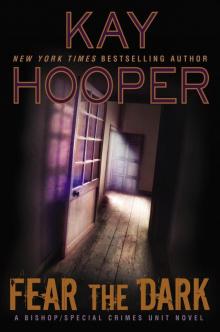 Fear the Dark
Fear the Dark Illegal Possession
Illegal Possession Stealing Shadows
Stealing Shadows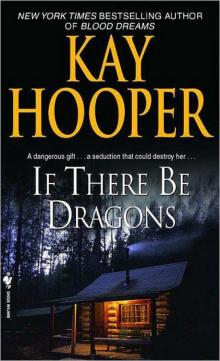 If There Be Dragons
If There Be Dragons Once a Thief
Once a Thief In Serena's Web
In Serena's Web On Wings of Magic on Wings of Magic
On Wings of Magic on Wings of Magic Hostage
Hostage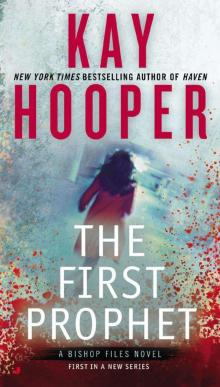 The First Prophet
The First Prophet Through the Looking Glass
Through the Looking Glass Golden Flames
Golden Flames Finding Laura
Finding Laura Haven
Haven The Haviland Touch
The Haviland Touch The Lady and the Lion
The Lady and the Lion Haunted
Haunted Velvet Ligntning
Velvet Ligntning Blood Ties
Blood Ties Adelaide, the Enchantress
Adelaide, the Enchantress The Matchmaker
The Matchmaker Golden Threads
Golden Threads The Haunting of Josie
The Haunting of Josie Rafferty's Wife
Rafferty's Wife Amanda
Amanda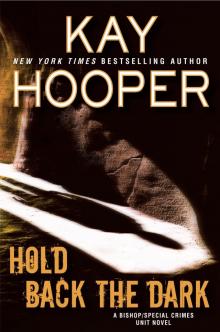 Hold Back the Dark
Hold Back the Dark Sense of Evil
Sense of Evil What Dreams May Come
What Dreams May Come Larger Than Life
Larger Than Life Enemy Mine
Enemy Mine Velvet Lightning
Velvet Lightning The Fall of Lucas Kendrick
The Fall of Lucas Kendrick Aces High
Aces High Captain's Paradise: A Novel
Captain's Paradise: A Novel The Wizard of Seattle
The Wizard of Seattle Lady Thief
Lady Thief Summer of the Unicorn
Summer of the Unicorn Outlaw Derek
Outlaw Derek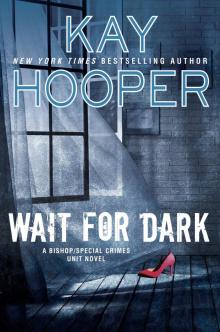 Wait for Dark
Wait for Dark The Glass Shoe
The Glass Shoe It Takes a Thief
It Takes a Thief Zach's Law
Zach's Law Unmasking Kelsey
Unmasking Kelsey Hidden Salem
Hidden Salem